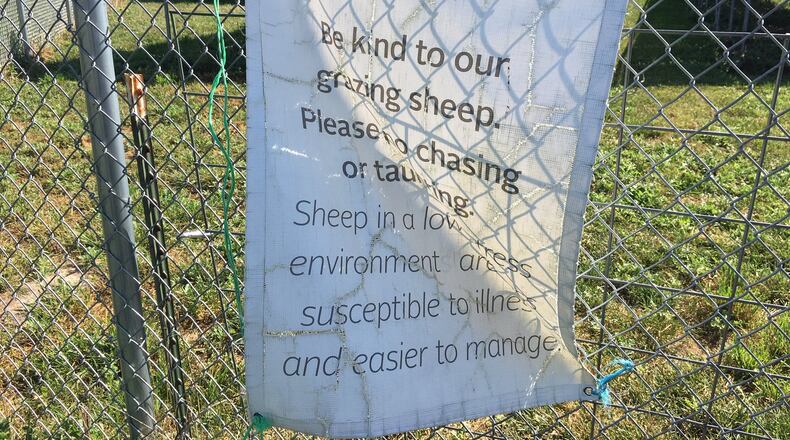In Defense of Animals, an international animal protection organization, said in a release on Friday, “Nine lambs from Antioch College’s farm are feared slaughtered despite a relentless campaign to save their lives which amassed 88,000 change.org signatures, a statement from over 100 scholars asking for the lambs’ release, television commercials, countless letters, emails, phone calls and a heartfelt request to honor the memory of Barbara Pearl’s son, Jason Seth Houten, a dedicated advocate for animals and a former Antioch College student.”
Campaign gives the ‘gift of warmth’ to tornado survivors
Pearl, who lives in Philadelphia, said she received an email from PETA alerting her about the situation at Antioch. She said she reached out to the school directly to find out if there was anyway to free the lambs.
“He was my only son. I don’t even have a gravestone for my son,” Pearl said. “I ‘ve never found a way to honor his memory. It sparked something inside me. I thought it would be a wonderful way to honor Jason. … It’s just heartbreaking how they could ignore a mother’s plea.”
In a September statement, Antioch said the sheep will continue to graze in the school’s solar field until the end of the grass growing season.
Antioch would not comment on whether the lambs have been slaughtered, but the lambs are no longer contained in the solar array field.
Previous coverage: Campaign against Antioch College sheep draws protest
The lambs are part of the college’s “sustainable farm-to-table dining program,” that “helps our students, and our faculty and staff, to understand what it truly takes to feed a community, especially in an ecologically sound, ethical manner,” according to Christine Reedy, assistant director of communications at Antioch.
Reedy said a memorial for Pearl’s son was never established before or after Nibert’s initial request to Antioch for the lambs to be released.
“On June 29, David Nibert sent our president, Dr. Tom Manley, an email asking us to release the solar sheep,” said Reedy said. “I sent Dr. Nibert an email response on behalf of President Manley. The response from President Manley clearly stated that after consulting with members of our campus community, our Board of Trustees, and other practitioners, that our sustainable farm-to-table dining program involving the solar sheep would not be changing. That is still true. We practice community governance at Antioch College, so changes like this would need to start from within our community and have buy-in from our community.”
The organization has planned a vigil for today at noon at the corner of Xenia Avenue and Corry Street, Yellow Springs, according to the IDA release.
“There’s a certain element of sadness,” Nibert said. “A lot of people are heartbroken so it might be harder to get people to come out to the vigil than the protest.”
Antioch is aware of the planned vigil and said its public safety officers, who work in coordination with Yellow Springs Police Department, are aware. The vigil is not set to be held on campus, Reedy said, so the college does not anticipate anything problematic.
Oregon District shooting victim to receive posthumous degree from WSU
“I guess there’s a positive, even though we’ve had harassment and death threats, we gained an enormous amount of support from our local community and across the county from people who’ve learned about our farm-to-table dining program and our sustainable farming practices,” Reedy said. “We’re proud of our educational program, and our students are learning the principles of ecological agriculture.”
About the Author
